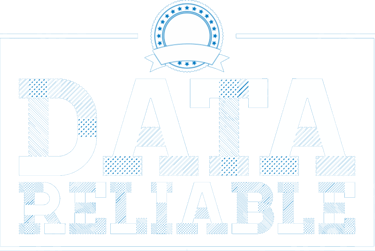Democrats Float Immediate Pay for Federal Workers During Shutdown as Congress Again Rejects Reopening Bill
Proposal would cover military, air traffic controllers, and essential civil servants as standoff grinds into second week
Kylo B
10/10/20253 min read
Democrats Float Immediate Pay for Federal Workers During Shutdown as Congress Again Rejects Reopening Bill
Proposal would cover military, air traffic controllers, and essential civil servants as standoff grinds into second week
October 4, 2025 Washington, D.C. As the federal government shutdown entered its second week with no resolution in sight, Democrats in the Senate are proposing a new measure to pay certain federal employees, including military personnel, air traffic controllers, and critical civil servants, even while most agencies remain unfunded.
The proposal comes after Congress once again failed to pass a full-year spending bill late Friday, leaving hundreds of thousands of federal workers either furloughed or working without pay. The bill, which would have temporarily reopened the government through November, was blocked in the House amid deep divisions over immigration policy, federal spending, and border enforcement priorities.
A New Approach: Pay Now, Fight Later
The new Democratic proposal, led by Sen. Tammy Duckworth (D-Ill.) and Sen. Jon Tester (D-Mont.), seeks to authorize immediate paychecks for essential employees still on the job, even if broader government funding remains frozen.
“If you’re protecting the country, keeping the skies safe, or ensuring Americans get critical services, you should get paid, period,” Duckworth said on the Senate floor.
The legislation, dubbed the “Fair Pay During Shutdowns Act,” would apply retroactively to the shutdown’s start date and ensure that uniformed service members, law enforcement officers, air traffic controllers, TSA workers, and certain civilian employees at federal facilities are compensated on schedule.
Democrats argue that paying essential workers would mitigate economic hardship and maintain public safety, while also putting pressure on lawmakers to resolve the broader funding impasse.
GOP Pushback: “A Political Gimmick”
Republican leaders have pushed back sharply, calling the proposal a “distraction” from what they describe as the real issue: curbing wasteful federal spending and tightening border enforcement.
“Democrats want to treat the symptoms, not the cause,” said Sen. John Thune (R-S.D.), the minority whip. “The way to pay federal workers is to reopen the government responsibly, not pass piecemeal bills for political optics.”
The White House has signaled opposition to the proposal, with administration officials insisting that partial funding measures would “undermine the urgency” of reaching a comprehensive budget deal.
Shutdown Fallout Widens
Meanwhile, the shutdown’s effects continue to ripple across the country.
Roughly 800,000 federal employees are either furloughed or working without pay.
National parks and museums have shuttered, with maintenance and security operations scaling back.
Air travel delays are mounting as understaffed airports face longer security lines and weather-related disruptions.
Military families have reported growing concerns about delayed housing allowances and child care benefits.
Economists warn that each week of the shutdown could shave up to $6 billion off quarterly GDP growth, according to estimates from Moody’s Analytics.
“The longer this drags on, the greater the risk to consumer confidence,” said Diane Swonk, chief economist at KPMG. “Even temporary lapses in pay can ripple through entire local economies.”
Broader Political Calculations
The renewed shutdown fight highlights the fragile political balance in Congress, where a slim Republican House majority and a narrowly divided Senate have repeatedly failed to align on spending priorities.
Democrats, for their part, are betting that a focus on worker pay and stability could appeal to centrist and suburban voters frustrated by gridlock.
“It’s a question of basic fairness,” said Sen. Mark Warner (D-Va.), whose state has one of the largest federal workforces. “These are people doing their jobs while politicians bicker. They shouldn’t be collateral damage.”
Republicans counter that the push is a messaging tactic designed to deflect blame from the White House.
“This isn’t about compassion, it’s about cover,” said Rep. Steve Scalise (R-La.). “The administration could have avoided this if it had taken border security seriously.”
A Centrist Take: Pragmatism vs. Posturing
From a centrist perspective, the Democrats’ proposal may represent a pragmatic but imperfect stopgap, an attempt to protect workers without resolving the underlying fiscal disputes.
While the plan could ease economic pain for essential employees, critics warn it might reduce incentives for lawmakersto reach a full funding deal. Still, it underscores a political reality that transcends party lines: Americans tend to sympathize with workers caught in the middle, not the politicians responsible for the stalemate.
With pressure mounting on both parties, the next few days will likely determine whether Congress can find a face-saving compromise, or whether this shutdown will become one of the longest in modern U.S. history.
Subscribe to our newsletter


